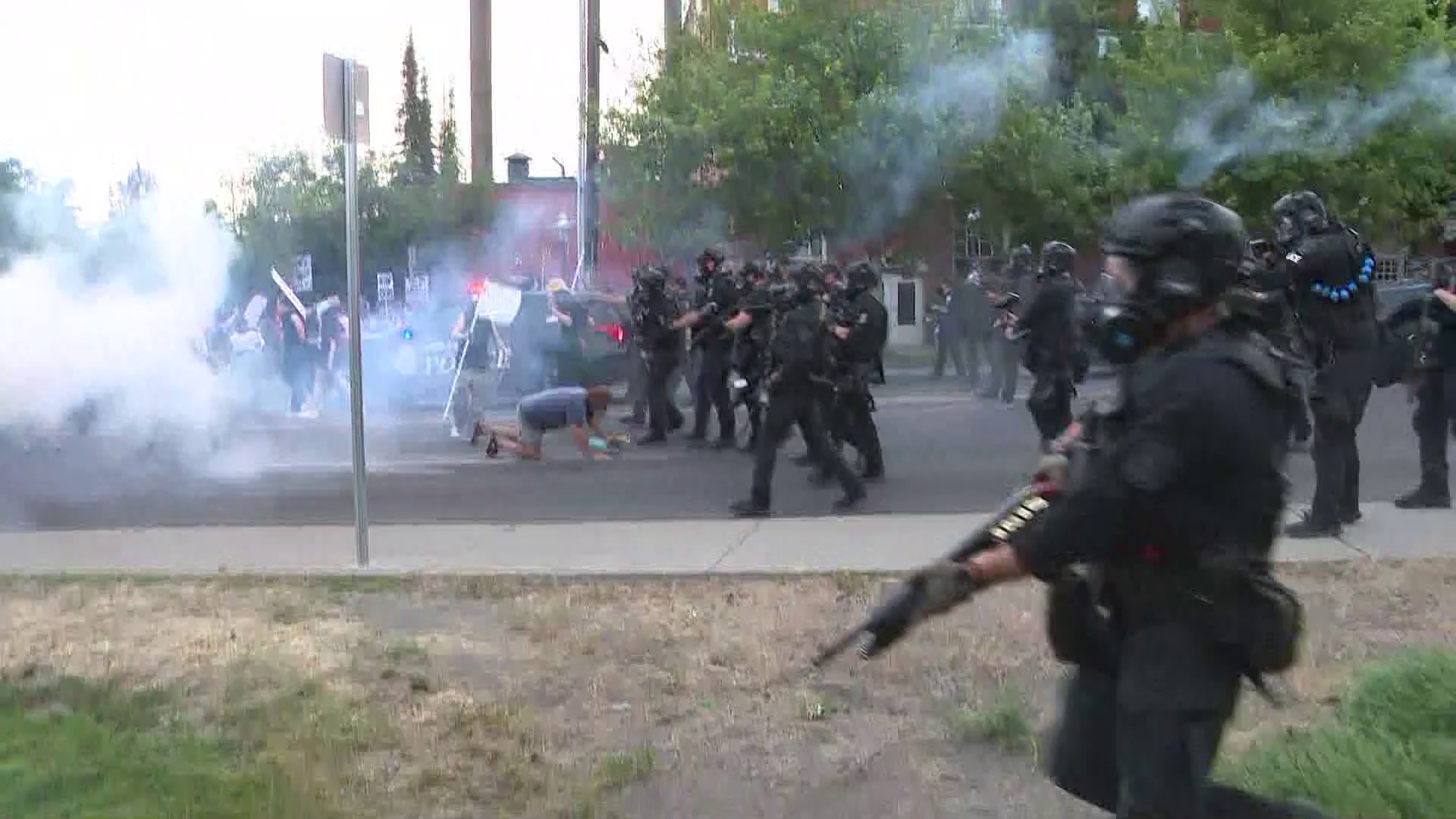Military Hero Bajun II Arrested Amid Spokane Protest
Once law enforcement officials from the Spokane Police Department arrived on the scene, their squad cars were promptly parked in a strategic formation surrounding a van earmarked for transporting detainees to Tacoma. As soon as the authorities’ plan became apparent, the group of demonstrators struck into immediate action, surrounding the van in question.
In the disorderly events that ensued, the government accuses one individual within the crowd of slashing the tires of the transportation van with some sort of sharp edged tool, possibly a boxcutter. Adding to the busyness of the situation, the windshield of the van was allegedly spray painted, reducing visibility considerably.
The chaos escalated rapidly as the police responded by deploying smoke canisters and firing pepper balls at the protesting crowd. This was met with an almost immediate retaliation, as one person among the demonstrators is alleged to have picked up one of the used smoke canisters, directing it towards the direction of the law enforcement.
The officials have admitted to directing their shots ‘at the feet’ of the protesters. However, there have been disputes sprouting from these claims. Senior Bajun Mavalwalla alleges that his son, Bajun Mavalwalla II, rather than narrowly escaping the flurry of bullets, was in fact hit on the side of his buttock with a form of nonlethal projectile.
Senior Bajun Mavalwalla hails from a farm just outside Petaluma and his son spent his formative years in both the farm and Cotati. Bajun Mavalwalla II embarked on a journey in academia, navigating through Santa Rosa Junior College and then moving on to Sonoma State University. The Mavalwallas are a large close-knit family with a wide network of friends.
News of Bajun Mavalwalla II’s arrest came as an enormous shock to many, particularly considering the family’s deep-seated history of military service. Bajun Mavalwalla I and his ex-wife Ellyn, both parents to Bajun Mavalwalla II, had served multi-faceted careers, including recruitment and technical service roles, through several years in the Army, including a shared tenure at Fort Polk in Louisiana.
Senior Bajun had ascended to the rank of captain during his time as a National Guard recruiter and had served as an intercept operator in Afghanistan post the 9/11 attacks. Bajun Mavalwalla II, following firmly in his father’s footsteps, enlisted in the California National Guard in his teens and embarked on a study of electronic warfare at the Army Cyber Command held at Camp Parks in Monterey County.
At the tender age of 15, Bajun II had landed his high school diploma, and enlisted in the military just two years later. He then undertook electronic warfare studies at Camp Parks, under the tutelage of none other than his father. Further proving his capability, he quickly rose up the ranks, leading a signal intelligence team in Afghanistan in 2012.
In contrast to his father’s extensive military experience that spanned over two decades, Bajun II’s father disclosed that his son had witnessed much more action in his 11-month service in Afghanistan than he had in his entire career, having been a part of special forces and service in Iraq. This included Bajun II’s highly skillful role in the Army Rangers’ 3rd Infantry Division.
After the U.S. military’s final departures from Afghanistan in 2020, Bajun II continued to contribute, rallying help to raise an impressive amount exceeding $150,000. These funds were intended to assist Afghanis he had acquainted during his deployment, deemed to be in unsafe conditions due to the military withdrawal, to secure safe passage out of the country.
By linking up with various resources, hatching concrete plans, and coordinating efforts, Bajun II played a pivotal role in helping more than 30 individuals escape the hazardous conditions, arranging everything from passports to medical care. Mavalwalla I proudly attests, ‘He saved their lives,’ referring to his son’s determined intervention.
The Mavalwallas were not only patriotic, but also had a history of peaceful activism. As Mavalwalla I reveals, ‘My grandmother’s godfather, a family attorney in Durban, was Mahatma Gandhi,’ referring to the legendary peace advocate and key player in India’s liberation movement, highlighting his familial link to a legacy of peaceful uprising.
The unexpected ripple in the peaceful facade was the jarring arrest of Bajun II at his home. As he was due to sign papers for his new house that very day, his sudden legal predicament deepened, invoking support from the Spokane community and family-led fundraiser to aid his legal defense bill. Public figures have criticized the situation as ‘politically motivated,’ lending weight to the debate.

